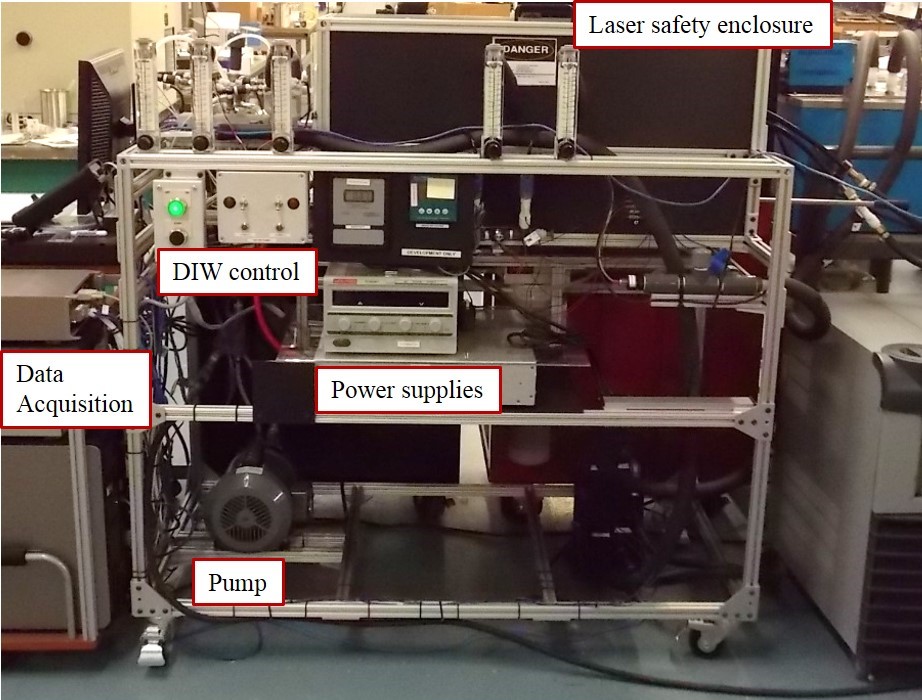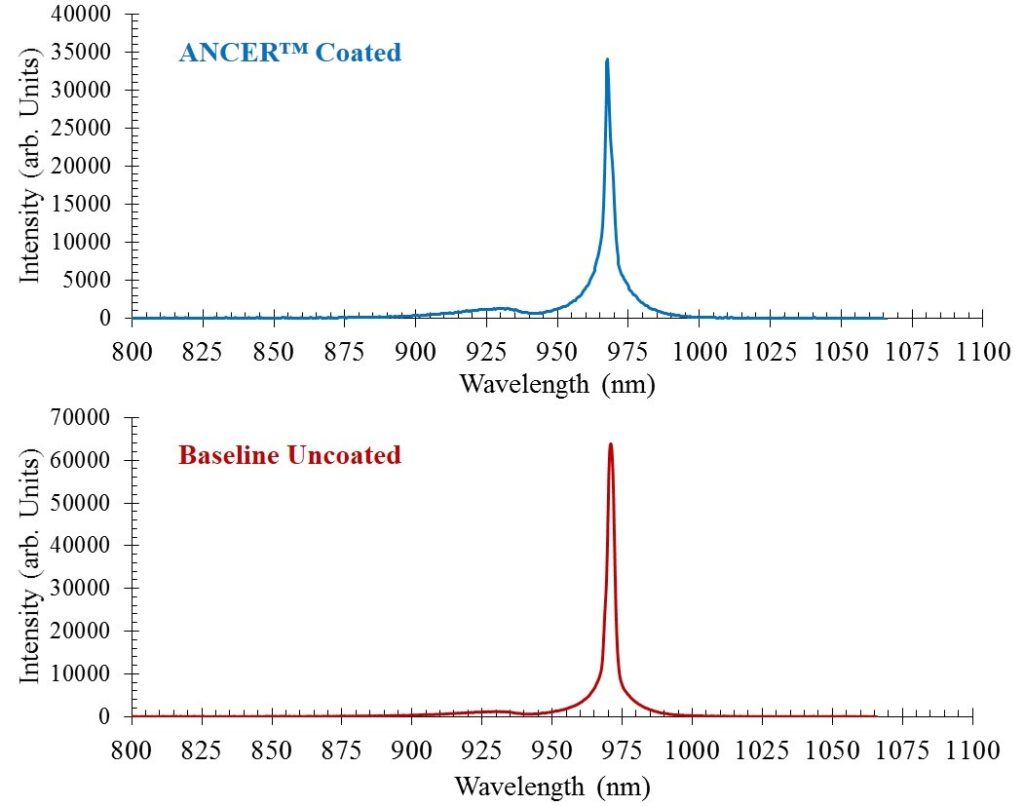Advanced Cooling Technologies, Inc. (ACT) has developed a Thermal and Optical Test Cart to evaluate the performance of microchannel coolers used in high-power laser diode thermal management. Copper microchannel coolers (MCCs) used in these applications are prone to degradation due to erosion-assisted corrosion. To provide protection from this degradation mechanism, ACT developed the Applied Nanoscale Corrosion Erosion Resistant (ANCER™) coating which can be applied uniformly to the high aspect ratio heat transfer features inside the MCCs. The Thermal and Optical Test Cart was developed to evaluate the effectiveness of this coating to prevent erosion-assisted corrosion in MCCs by performing extended life tests of ANCER™-coated and baseline-uncoated copper MCCs.
The Thermal and Optical Test System consists of a pumped loop for de-ionized water (DIW) coolant, which is required in laser diode cooling applications to prevent leakage currents. The test cart has DIW conditioning and controls to monitor and maintain DIW quality parameters such as resistivity, pH, and dissolved oxygen content. Laser diode microchannel coolers are typically assembled into “stacks” of several MCCs that are manifolded in parallel. The test cart can accommodate several MCC stacks and provides measurements of DIW pressure differential and temperature increase for each stack. Additionally, the Thermal and Optical Test System is equipped with the capability to periodically monitor the optical performance of the light emitted by the laser diodes or other light-emitting devices such as LEDs. By collecting the light into an integrating sphere, the total optical power output and wavelength distribution can be measured. The Thermal and Optical Test System is shown in Figure 1.


ACT has used the Thermal and Optical Test System to evaluate two sets of commercially available copper MCCs. The first set uses resistive heaters to simulate the laser diode waste heat load. Temperature measurements on the surface of these heaters allow a calculation of the thermal resistance of the MCCs. A 5200 hour life test of ANCER™-coated and baseline-uncoated MCCs has shown that the thermal resistance of the uncoated coolers has increased by over 30%, while the thermal resistance of the ANCER™ coated coolers has remained stable. These results are shown in Figure 2.
The second set of commercially available copper MCCs evaluated by ACT was assembled in stacks that have actual laser diodes bonded to the coolers. Figure 3 shows the spectral distribution measured for the ANCER™ coated and baseline uncoated laser diode stacks at the beginning of an extended life test, demonstrating the capability of the Thermal and Optical Test System.

For more information on testing microchannel coolers or cold plates, or developing a custom test apparatus to evaluate the thermal and hydraulic performance of your thermal management devices, contact ACT.

